Data Privacy Management Software helps organizations ensure compliance with data protection regulations, safeguard customer information, and manage data subject requests efficiently.
Data Privacy Management Software plays a crucial role in addressing the growing concern for data privacy by providing tools to manage user data effectively. This software aids businesses in meeting regulatory requirements and maintaining customer trust. These solutions often include capabilities such as data mapping, risk assessment, and incident response to facilitate a robust data protection framework.
What features should you consider?Data Privacy Management Software solutions have different implementation methodologies depending on the industry. In healthcare, these tools ensure patient data protection compliance with HIPAA regulations. For financial services, they manage GDPR compliance, safeguarding customer financial information. Each industry utilizes these tools to address specific regulatory and privacy needs.
Adopting Data Privacy Management Software is essential for organizations to maintain regulatory compliance, secure sensitive data, and build trust with their customers. These tools streamline privacy management processes and reduce the risks associated with data handling.



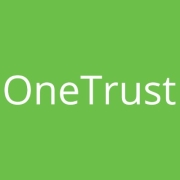
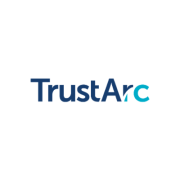
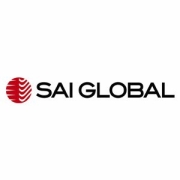



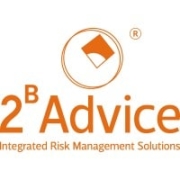










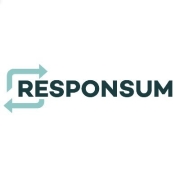

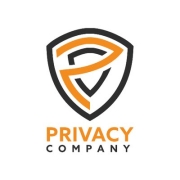
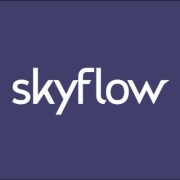













Data Privacy Management Software is essential for organizations to protect sensitive information and comply with data protection regulations. These tools help organizations manage and secure data, monitor access, and ensure compliance with privacy laws. There are several different types of Data Privacy Management Software available, each serving a specific purpose in safeguarding data privacy.
1. Data Discovery and Classification Tools: These tools scan an organization's data repositories to identify and classify sensitive data. They help organizations understand what data they have, where it is stored, and its level of sensitivity. By categorizing data, organizations can implement appropriate security measures and ensure compliance with data protection regulations.
2. Data Access and Identity Management Tools: These tools control and monitor access to sensitive data. They enforce access controls, such as role-based access control (RBAC), and provide authentication and authorization mechanisms. Identity management tools ensure that only authorized individuals can access sensitive data, reducing the risk of data breaches.
3. Data Encryption Tools: Encryption tools protect data by converting it into an unreadable format, which can only be decrypted with the appropriate encryption key. These tools ensure that even if data is compromised, it remains unreadable and unusable to unauthorized individuals. Encryption is a critical component of data privacy management, especially for data in transit and at rest.
4. Data Masking and Anonymization Tools: These tools replace sensitive data with fictitious or scrambled values, preserving data utility while protecting privacy. Data masking is commonly used in non-production environments to ensure that sensitive data is not exposed during development or testing. Anonymization tools remove personally identifiable information (PII) from datasets, allowing organizations to use data for analysis and research while protecting individuals' privacy.
5. Data Breach Detection and Response Tools: These tools monitor network traffic, system logs, and user behavior to detect potential data breaches. They provide real-time alerts and automated responses to mitigate the impact of a breach. These tools help organizations identify and respond to security incidents promptly, minimizing the damage caused by data breaches.
6. Data Privacy Compliance Management Tools: These tools assist organizations in managing and demonstrating compliance with data protection regulations, such as the General Data Protection Regulation (GDPR) or the California Consumer Privacy Act (CCPA). They provide features like privacy impact assessments, consent management, and data subject request management, helping organizations meet their legal obligations and avoid penalties.
In conclusion, Data Privacy Management Software is crucial in protecting sensitive information and ensuring compliance with data protection regulations. Organizations should consider implementing a combination of these tools to establish a robust data privacy management framework and safeguard their data from unauthorized access and breaches.
Data Privacy Management Software is essential for organizations to ensure the protection and compliance with data protection regulations. These tools offer a range of benefits that help businesses effectively manage and safeguard their data assets. Here is an overview of the key advantages of using Data Privacy Management Software:
1. Compliance with Data Protection Regulations:
2. Data Inventory and Mapping:
3. Consent Management:
4. Data Subject Rights Management:
5. Risk Assessment and Mitigation:
6. Incident and Breach Management:
7. Vendor and Third-Party Management:
8. Data Retention and Disposal:
9. Audit and Reporting:
10. Enhanced Data Security:
In conclusion, Data Privacy Management Software offers organizations a comprehensive solution to address the complexities of data privacy and compliance. By leveraging these tools, businesses can effectively manage data protection, mitigate risks, and ensure regulatory compliance, ultimately fostering trust with customers and stakeholders.
Data Privacy Management Software is designed to help organizations effectively manage and protect sensitive data, ensuring compliance with data privacy regulations and minimizing the risk of data breaches. These tools provide a comprehensive set of features and functionalities to streamline Data Privacy Management processes. Here is an overview of how Data Privacy Management Software works:
1. Data Inventory and Mapping:
2. Privacy Impact Assessments (PIA):
3. Consent Management:
4. Data Subject Rights:
5. Data Breach Management:
6. Vendor Management:
7. Privacy Training and Awareness:
8. Audit and Reporting:
9. Integration and Automation:
Data Privacy Management Software plays a crucial role in helping organizations establish robust data privacy practices, ensuring the protection of sensitive information and compliance with privacy regulations. By providing a centralized platform and a range of features, these tools enable organizations to effectively manage data privacy risks and maintain trust with their customers.